Am I the patriachy?
How feminist humor might be reinforcing what we're fighting against
The following is a companion article to this one about PMDD symptoms and the oppressive trauma that women face. Please be advised that it includes a description of rape.
About a few months ago, I found myself texting my ex, “I'm proud of you for opening up emotionally even though it must be really hard and scary after being told you shouldn't for your whole life. I can't really understand what it is like to be a man.”
Throughout our relationship, there were moments I would get frustrated that he wouldn’t just talk about what was going on. Rightfully so, because sometimes his behavior would get pretty shitty when he was not willing (or able) to talk about whatever it was that was bothering him. And I would feel pretty shitty about myself when I questioned if I was just letting him be shitty to me.
There are many men I respect and value: my brother (who responded, “Yes, sweetie?” every single time I heard his toddler daughter turn to him), my therapist (sure, I pay him to emotionally validate me, but he does a good job), my awesome clients at my internship, and friends who make me laugh or offer valuable perspectives on life or are there for me when I need it.
And also, so much of my trauma has come from men that there are certain things I find myself struggling to empathize with.
What Brown also discovered in the course of her research is that, contrary to her early assumptions, men's shame is not primarily inflicted by other men. Instead, it is the women in their lives who tend to be repelled when men show the chinks in their armor.
"Most women pledge allegiance to this idea that women can explore their emotions, break down, fall apart—and it's healthy," Brown said. "But guys are not allowed to fall apart." Ironically, she explained, men are often pressured to open up and talk about their feelings, and they are criticized for being emotionally walled-off; but if they get too real, they are met with revulsion. She recalled the first time she realized that she had been complicit in the shaming: "Holy Shit!" she said. "I am the patriarchy!"
I’ve been the embarrassing type of feminist as far back as I can remember. When we were asked to introduce ourselves on the first day of high school with something we liked or disliked, after my fellow students said things like, “My name is Amir, and I like basketball,” I introduced myself as “Chen, who hates homophobes.” The teacher asked what I disliked about them, and I did not recognize that she was giving me an out. I stared back as though she was the idiot and said, “The fact that they’re homophobes.”
I had just read about the murder of Matthew Sheppard, and I was not enjoying sitting in bible class learning I’m supposed to worship a god that disavows men for having sex with a man but said nothing against sex with children or raping women. When our biology teacher said magnets attract each other like men and women, everyone looked at me. Then, in Citizenship class (in Israel), no one else seemed to see a bit of hypocrisy parroting “never again” while turning a blind eye to violence against Arabs.
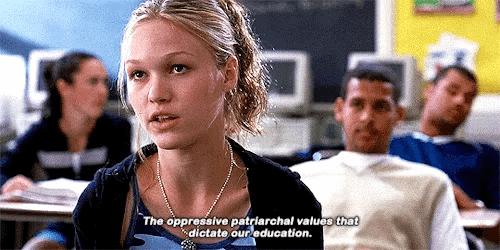
In my early 20s, there was this popular course that taught men how to hit on women; you’d see them in certain malls and public places in Tel Aviv, approaching women to learn to be comfortable with rejection. One day, feminist groups dug up a post from this course’s forums: a guy described a date he went on, with congratulatory replies from the participants and course teachers (Google translated from Hebrew with some corrections by me):
"Without asking just take her and kiss... that's what they want (don't listen to them). I encountered countless objections along the way... but I persisted... she just refused to take off her clothes but I'm a blind rhinoceros... I took her hand and put Her on the cock... I tried to take off her panties and the girl just flat out refused!! Then... I moved the panties to the right and boom! The girl was shocked, and honestly I was too... after that everything flowed."
This course had a conference, and women’s groups attended in protest. I had thought the purpose was to talk to the men and explain the problematic nature of these types of courses. I was talking to a man there. We had a good discussion, during which the guy discussed his loneliness and inability to talk to women.
Around us, people from the protest were breaking in through the window (embarrassingly, including my sibling). I wanted to give him my email so we could keep talking but suddenly hesitated at him knowing my full name. I decided to give him my school email. Except I had just started university and hadn’t memorized it properly yet.
I mistakenly gave him the wrong email, so I can’t know if he ever tried reaching out. I don’t remember what he looked like and wouldn’t be able to recognize him today, but I remember looking at him and feeling, for a moment at least, his frustration, loneliness, and despair. He was trying to solve his problems in the best way he knew, and he was being told that it was wrong, with no alternatives, that the solution was simple and obvious and he should figure it out himself. I could relate to that.
During this entire time, when I’d point out to someone that they were being racist/sexist/homophobic/etc, they’d usually reply with some variation of “It’s just a joke, lighten up." To which I’d reply: “I’m a feminist, I don’t have a sense of humor.” And to an extent, I believed that. Right up until I decided to try a comedy writing workshop in my 30s. When we were told that the goal was for us to perform a five-minute set at an open mic when we finished the workshop, my first reaction was “Absolutely not.” And then I performed, and it went pretty damn well. I loved going to open mics for a while, trying to support other comics, but I got tired of endless jokes about pedophilia and handjobs, particularly after moving from the small island I lived to bustling Bangkok.
One day, I sat with a group of male comedians. Slightly stoned from the joint they kindly shared with me, I told them my honest opinion, that I would rather hear them talk about something “real” than another set about happy ending massages. In Bangkok, Thailand, one of the comedians said he assumed that the young men in the audience were there for that type of humor, but reflected that he disliked it when people assumed things about his relationship with his Thai partner. “I’d rather hear about that,” I shrugged. I knew I wasn’t going to be popular in that circle, and I moved on after giving it several more attempts.
Humor can be a refuge. We use jokes and humor to deal with our anger and pain, to point out the absurdities of the world around us and what brings us together. Humor can also be a weapon.
Take the popular "male tears" joke among feminists. It's meant to mock men who react defensively to discussions of women's rights. But doesn't it also reinforce the idea that men shouldn't cry or express vulnerability? Are we not, in our attempt to challenge one aspect of patriarchy, inadvertently reinforcing another?
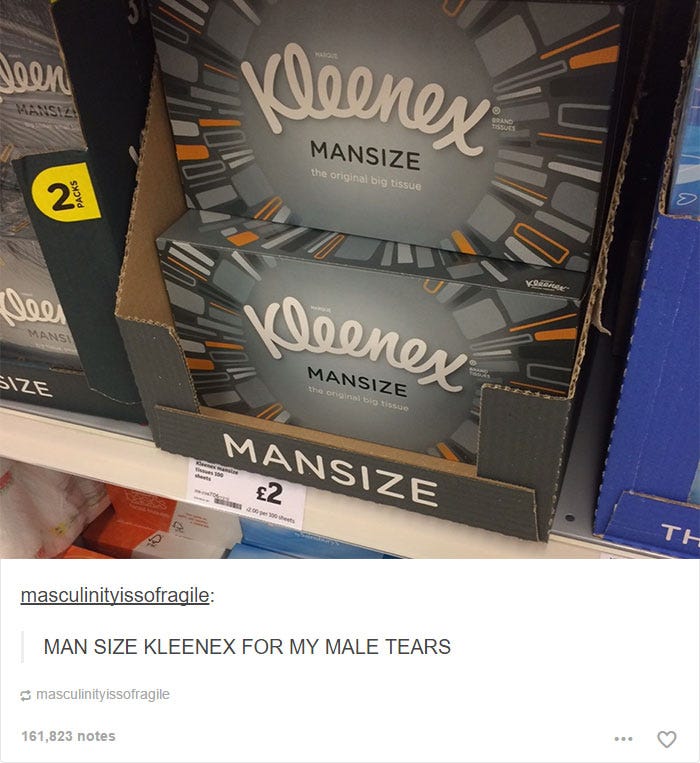
In that comedy workshop, I learned I should “punch up, not down.” That means I should only joke about groups I’m part of, unless they’re more powerful than me. That generally means that men should be careful about making jokes about women (they seemed to have missed the memo), but women can go on joking about men because their lives are just better.
In my early 20s, my then-boyfriend and I would joke about how hard it was to be a man: “Sometimes I want some toast, but no one is making me toast,” he’d lament sarcastically. My female friends and I would laugh/complain about how men we encountered shared the same patterns of defensiveness, deflection, and inability to apologize, no matter which country or generation they came from. There were lots of laughs and some catharsis for sure, but I never felt much better.
We tell men they need to talk about their feelings instead of… *gestures broadly at everything*. Yet we don’t give them grace for not doing it “right” - and really, who does get everything right when they’re just starting with something?
So I think it’s fair to say that men have it just as hard as women - and in some ways, they may even have it worse. Ideally, though, we won’t compete over who suffers more.
Women are so often taught to accept the status quo with men, because after all women before us had it worse. On the other hand, certain types of men's efforts truly aren't fully appreciated in our society. I personally took certain things my ex did for granted - Hanging up shelves for me, being the automatic driver, carrying water jugs, buying me thoughtful gifts to support new phases in my life. I was grateful but couldn’t let myself appreciate these things because he also couldn’t be there for me emotionally.
I think as women, maybe we don't accept what a big shift it is, going from being told your whole life that you should be the strong, silent provider, to being told to open up and be emotionally open, sensitive, and mature.
I kept telling my ex that I couldn’t be his therapist and that he needed to make more male friends. It’s not that he didn’t try. He joined a men’s group, and went on hikes with a few guys, for beers with others. He was frustrated with the way they spoke about women or how they had to drink to talk about anything emotional. I tried to be as supportive as possible but was also frustrated: “There are more men out there! Go meet them - some of them probably feel similar to you!” But again, I have no idea what it’s like to be a man who was taught to hide his emotions from men for over 50 years, out hunting for men to share feelings with.
Creating a society where men speak up about their emotions means that, as women, we’ll have to deal with hearing them say things that are horrifying, triggering, or a complete turn-off. In many cases, we may need to set boundaries around being their container for stuff they should speak to a therapist about, or at least other men. I’m not advocating for women to take on even more unpaid, unappreciated work of guiding men through their feelings. However, I believe that more compassion and understanding are always good for the world. When I imagine the type of world I want to live in, it’s not one where I harden my heart.
I’m not great with endings; I feel like I need a conclusion to this post, a message, something to tie it all together, but I don’t have one. I’m still asking myself how to believe the best in men, reading articles about it, and bringing it up in therapy. I just know that I want to make things differently.


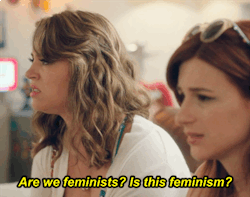
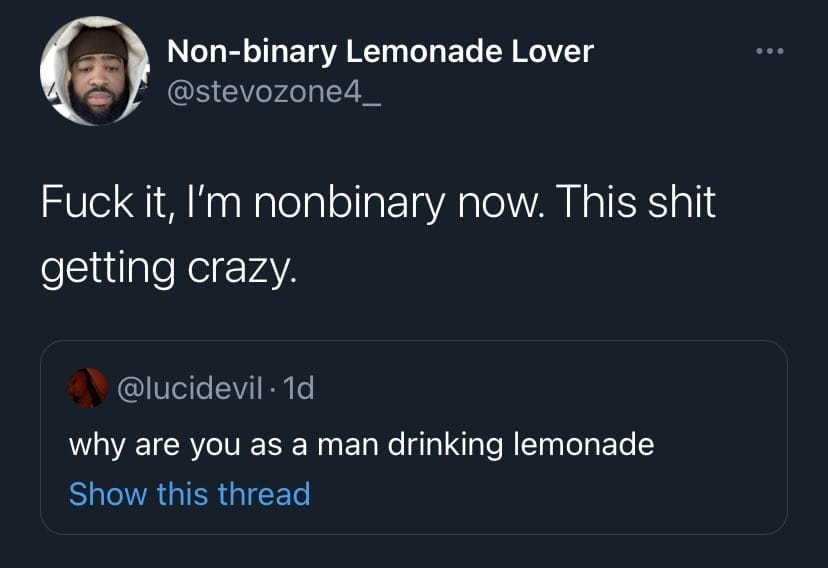
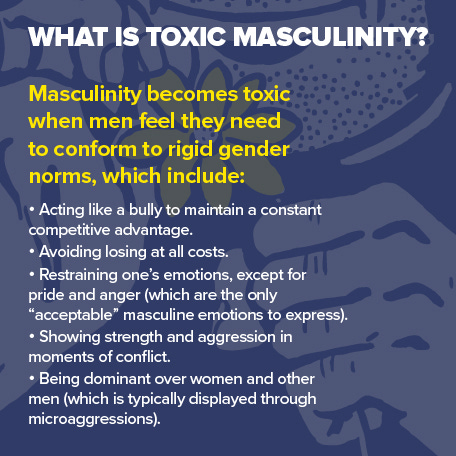
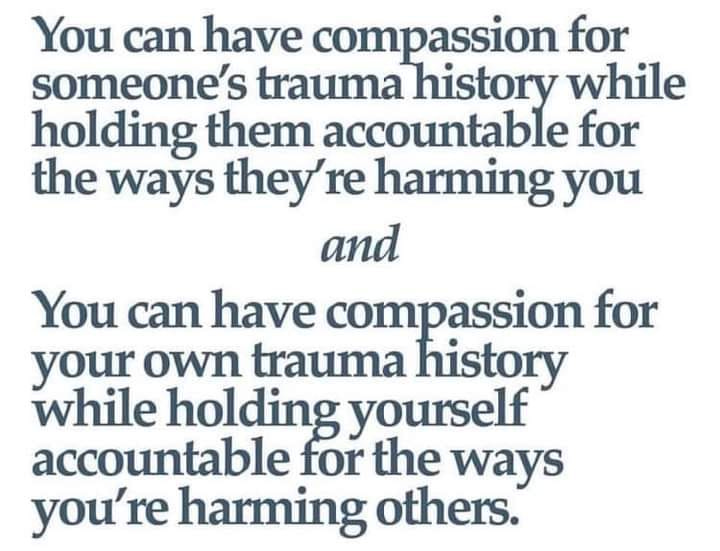
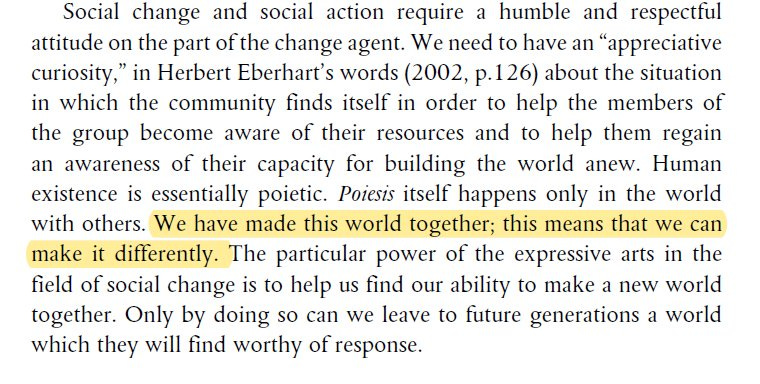
So grateful I have found this post!
I think it is so important to point out how we shouldn't focus on hosting a competition to see who suffers more, while what we really should be doing is listening to other's experiences and trying to be compassionate. After all, even though the patriarchy affects different people in different ways, the best way we can encourage change is by fighting for it together.